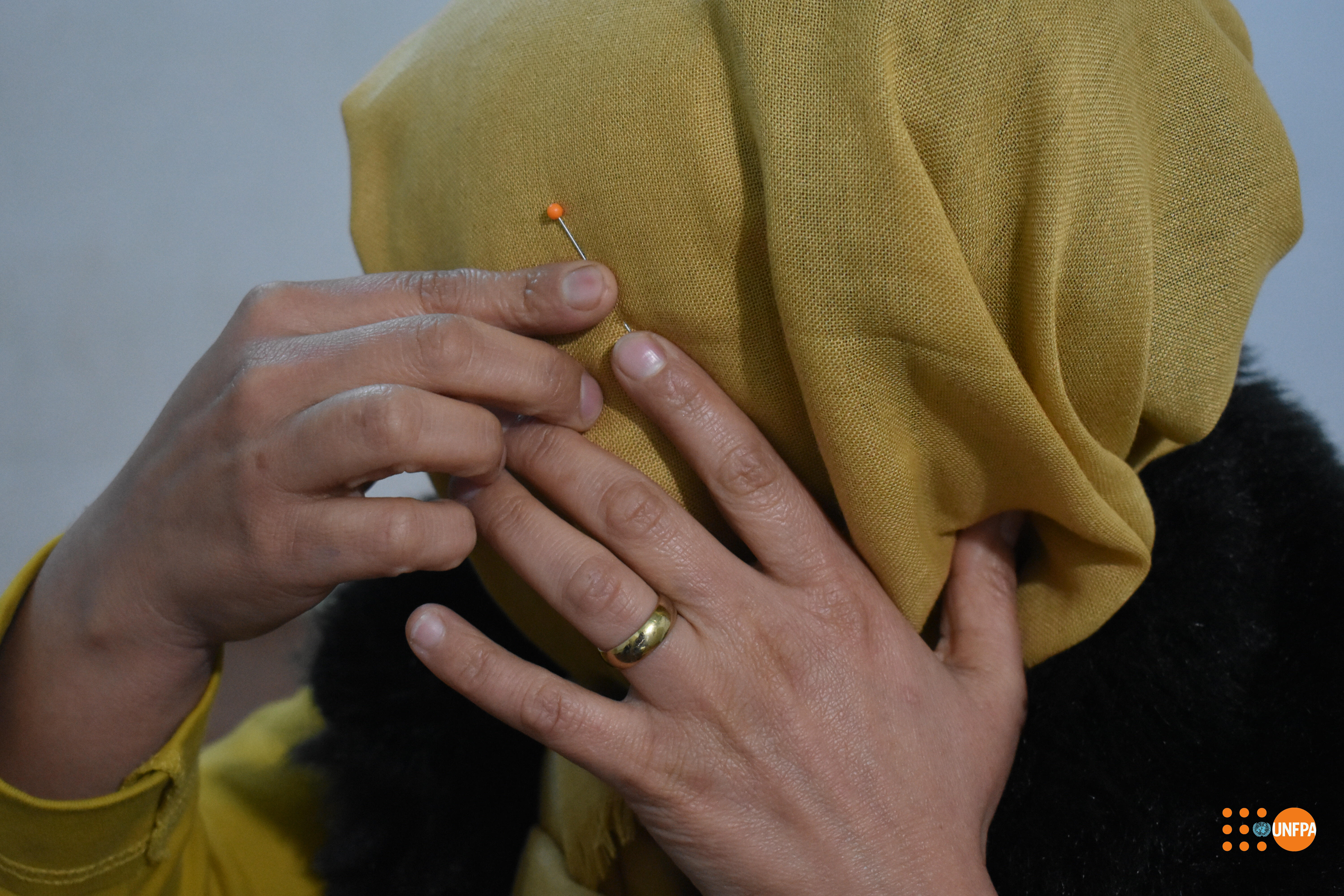*name change for protection reasons
‘There are lots of setbacks in life, but what matters is standing up again’, said 33-year-old Gender-Based Violence survivor Cojine*. ‘I want to tell women that they have a choice and that they can turn their lives around’.
Violence against women and girls remains one of the most prevalent human and women rights violations in the world where many continue to be subjected to verbal, psychological, physical and economic forms of violence and abuse. In Iraq, at least 36 percent of married women are reportedly experiencing psychological abuse from their husbands, 23 percent experiencing verbal abuse, 6 percent facing physical violence, and 9 percent are subjected to sexual violence, according to a 2012 study conducted by the Iraqi Ministry of Planning.
Cojine has been married for four years now. When her parents passed away, she relied on her brothers for financial support. However, her brothers wanted to build families of their own, therefore, she accepted a marriage proposal from a classmate she had met through a third party. ‘I thought this could be my new beginning and I could start a new life with someone who is educated and can provide a safe home’, she explained.
‘The problems started a couple of months into our marriage… Every time we would have an argument, my husband would go to his family and complain about me. They would interfere only to make the situation worse. I kept telling him that this was not the right way to work on our marital problems, but he wouldn’t listen. He wouldn’t even spend any money on vital household appliances, our home, the safe haven I imagined for him and me. I repeatedly asked him to spend some time together as husband and wife, to go out and do activities like any other couple, but he would refuse and would instead ask me to stay with my family for a week. When I used to protest, I would get physically abused; he would sometimes hit me and punch me. He once hit me so hard on my face that I now have a hearing impairment’, she added. ‘I felt like a prisoner in my own home, I was hopeless and didn’t know what to do so I cried myself to sleep for long nights’.
I felt like a prisoner in my own home, I was hopeless and didn’t know what to do so I cried myself to sleep for long nights
Cojine was also subjected to psychological abuse through continuous threats from her husband to divorce her – a taboo subject in Cojine’s community. “As you know, divorce is negatively perceived in our community; people will spread rumors, blame me, and consider me a woman with no honor’, she said.
“He used to tell me that he didn’t want me and preferred to spend his time with his friends. I left the house many times but then he would come back with his family and convince me to return”.
When things got worse, Cojine considered committing suicide. She left the house again. Nine months later, she heard about the UNFPA-supported Women Centre in Bnaslawa, in Erbil. She visited the centre a couple of times and when she felt she could trust social workers there, she shared her painful story and informed them that she wished to get a divorce: ‘I was determined to get a divorce. I was emotionally damaged, I was broken, I was disrespected and I needed to get out of the toxic marriage. I was depressed that I started losing hair, got skin irritation and started taking anti-depressants’.
‘A few days later, I sat with a lawyer to discuss my case but he told me that it had no ground since I did not have any physical evidence or medical reports of the abuse. My brother wanted to resolve the issue through the traditional way. My family-in-law kept asking me to go back to my husband. I eventually did but on the condition that I keep going to the Women Centre”, she said.
‘The centre provided me with a space to breath; they listened to me, gave ma advice and provided me with information about my rights. They helped me see things from a different perspective. The awareness sessions I attended showed me that I do not have to be the victim and that I can make a change. They taught me how to handle my problems in a healthy way and avoid depression. I now work at the centre and I help other women deal with their problems. I listen to them and share my experience with them’, she happily shared.
‘I have now returned home. My husband no longer sees me as the weak kind, he now respects me as he sees how confident I have become. Nowadays, I feel empowered. This job is a dream come true, I can have time for myself and I have a new income. It changed my life; now I can socialize with women and learn from them and their experience’, she concludes.


